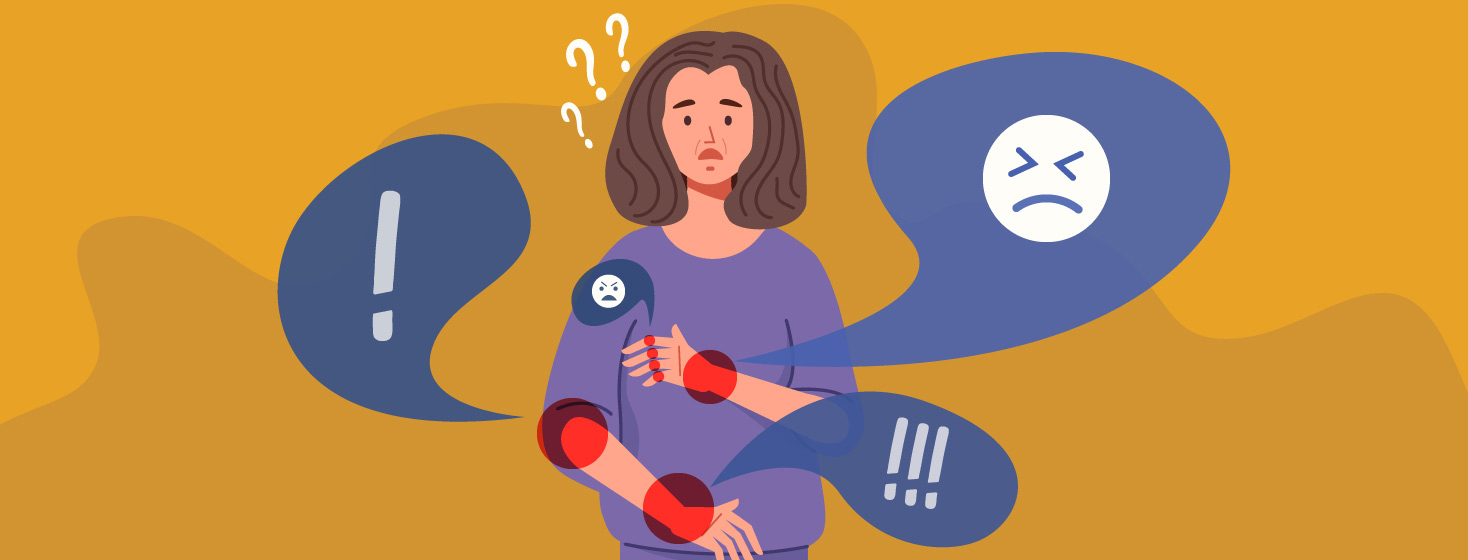Second-Guessing My Symptoms and Myself
Just as my condition fluctuates, so does my self-perception. There are days when I am achy, and I want only to rest. Often on days like that I second-guess myself and wonder how bad the pain “really” is, and if perhaps I’m making too much of it.
Second-guessing RA pain severity
I call into question whether it’s the disease that is entirely to blame or if it’s poor coping skills that are responsible. I’ll wonder if rather than listening to my body, I should instead ignore my symptoms, and just push through and pull myself up by my bootstraps, so to speak.
Then, of course, there are the days when the pain is so searing, so omnipresent, that all I can do is obey its wishes and go to bed with painkillers and a heating pad. In those moments, the pain is too intense to doubt its reality for a second.
It’s not a matter of pain tolerance or of perception, because pain that intense just can’t be tolerated. Those times leave me astounded at my foolishness on those milder days, when I do second-guess myself. A flare leaves no question as to whether any of this could be in my head. Yet, once the flare subsides and I have a number of good days, I find myself again second-guessing my symptoms.
Why do we question the severity of pain?
I have heard from many people in the RA community and know I am not alone in sometimes questioning the severity of the symptoms I am experiencing. It’s a perverse form of wishful thinking: perhaps if I could change my perceptions (which I do have some control over) then I could make my disease (which I have very little control over) go away.
In a way, the thought that I just need to toughen up a little is preferable to the reality that I have a chronic, degenerative disease that doesn’t have a cure and that is both unpredictable and variable in nature.
An attempt to practice positivity
Of course, there is a lot of power in positive thinking, and I’ve personally found benefit from guided imagery CDs that focus on the body’s strength and ability to heal itself. Laughter can be excellent medicine, and an optimistic outlook on life can ward off depression.
A form of denial
However, there is a huge difference between staying positive and being in denial. When I second-guess myself, it doesn’t help my physical symptoms; on the contrary, over-exertion can lead to an increase in symptoms, and the flogging I give myself when thinking I might be making a mountain out of a molehill leaves me feeling emotionally weak in addition to physically vulnerable.
It has been 14 years since my diagnosis, and no matter how many times I have vowed to honor the messages my body is sending me (“Go ahead and rest already!”), I still catch myself second-guessing, and even berating, myself that if only I could toughen up all of this wouldn’t be such a big deal. It’s wishful thinking, but not the kind that leads to dreams come true. My RA isn’t going to be wished away, and the kinder I can be to myself the stronger I’ll be in facing the continual challenges of having this disease.

Join the conversation